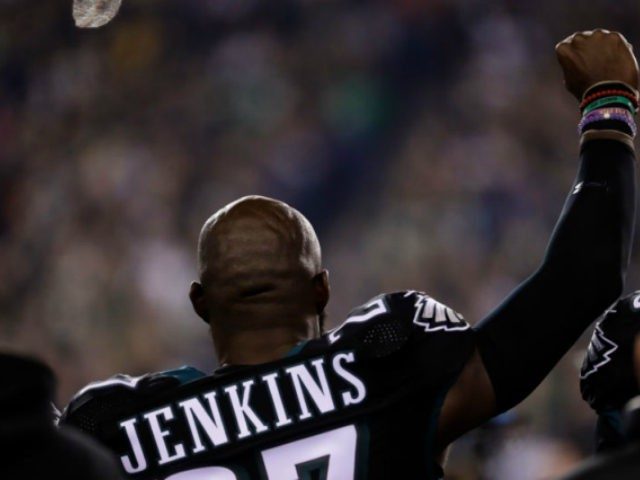The NFL Players Coalition has amassed 1,400 signatures from players, coaches, staff, and front office, current and retired, in support of a bill that would make end qualified immunity for police.
The letter, which has signatories from across the NFL, NBA, and Major League Baseball, will be sent to the United States Congress.
The bill, co-sponsored by U.S. Representatives Justin Amash, L-Michigan and Ayanna Pressley, D-Massachusetts, endeavors to remove the doctrine of qualified immunity in order to make it easier for private citizens to sue law enforcement and other public officials if they believe their constitutional rights have been violated.
The bill has several high-profile signatories, such as Tom Brady, Drew Brees, Alex Bregman, and Carson Wentz.
The Players Coalition has been active on the legislative front. Recently, the group sent a letter to Attorney General William Barr and FBI Director Christopher Wray asking them to open an investigation into the shooting death of Ahmaud Arbery.
Now, the coalition would like to see a bill passed that would give much more latitude to those seeking to hold the police directly accountable.
“We are tired of conversations around police accountability that go nowhere, and we have engaged in too many ‘listening sessions,’ where we discuss whether there is a problem of police violence in this country,” the letter states. “There is a problem. The world witnessed it when Officer [Derek] Chauvin murdered George Floyd, and the world is watching it now, as officers deploy enormous force on peaceful protestors like those who were standing outside of the White House last week.
“The time for debate about the unchecked authority of the police is over; it is now time for change.”
As ESPN reports:
Section 1983 of the Civil Rights Act of 1871 gives individuals the right to sue state and municipal government officials, including police officers, if their rights were violated. That section of the act, the bill states, “never included a defense or immunity for government officials who act in good faith when violating rights, nor has it ever had a defense or immunity based on whether the right was ‘clearly established’ at the time of the violation.” From 1871 until the 1960s, the notion of qualified immunity was not granted for the violation of rights.
According to the bill, the 1967 Supreme Court case Pierson v. Ray started offering ways to protect government officials, including police officers, from being sued in civil court, and a 1982 ruling created the “clearly established” doctrine of qualified immunity. Often, that “clearly established” doctrine has been used as a way to grant officers immunity from civil suits.
The Amash-Pressley bill — along with a June 3 Senate resolution presented by Senators Kamala Harris (D-California), Edward Markey (D-Massachusetts) and Cory Booker (D-New Jersey) asked for the end of qualified immunity.
“It is time for Congress to eliminate qualified immunity and it can do so by passing the Amash-Pressley Bill,” the players wrote. “When police officers kill an unarmed man, when they beat a woman, or when they shoot a child, the people of this country must have a way to hold them accountable in a court of law.
“And officers must know that if they act in such a manner, there will be repercussions. A legal system that does not provide such a recourse is an illegitimate one. In their grief, people have taken to the streets because for too long, their government has failed to protect them. The Courts and elected officials alike have instead shielded people who caused unspeakable harm. Congress must not be complicit in these injustices, and it should take this important step to show that law enforcement abuse will not be tolerated.”
The Players Coalition is active on other fronts as well. This week, Saints safety and Players Coalition founding member Malcolm Jenkins, publicly called for the NFL to apologize to Colin Kaepernick specifically for allegedly “blackballing” in response to his anthem protests.
Follow Dylan Gwinn on Twitter @themightygwinn

COMMENTS
Please let us know if you're having issues with commenting.